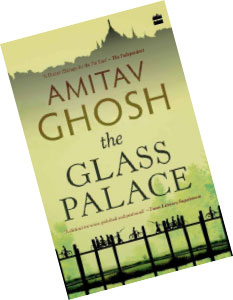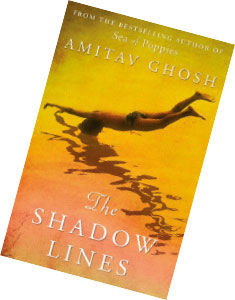

Oh, I don’t read.” Like, it’s a waste of time. Like, it’s the in thing. Like, bro, who does that!
The frequency and nonchalance with which I’ve heard this statement being tossed about over the last few years should have finished me off but for the overriding optimism that rides over that sinking feeling. Still, it’s not funny when one young person after another prefaces a discussion on books or even college/school book-based assignments with words that suggest next to no reading of anything except textbooks and, if ever, some motivational material. Believe me, it takes a lot of will power not to let fly a left or right hook! If I were a boxer, that is. But that’s how deep it gets under my skin when I think of all the people who are not reading these amazing books desperately calling out to be picked up.
So, yes, even a hardened optimist such as myself gets depressed. The good thing, though, is that if you love to read, you can’t stay depressed too long because you know there’s always a good book waiting around the corner. It’s merely a question of finding it.
Some people ask: How do you know you want to read a particular book? The simple answer is: I don’t. It’s the detective inside that unearths or stumbles upon the clues. The most obvious are book reviews. You can learn a lot from those, including the reviewer’s personal preferences because the choices you make are so subjective. Of course, there are also a whole lot of books that recommend themselves because they’re just amazing and no amount of subjectivity will camouflage that. But certainly, book reviews are one clue.
Then there’s promotional material put out by the publishers. However, be warned. This is all to do with selling the book so don’t be fooled. What such material is good for is a gist of the content or maybe sometimes, even a short extract. Read and judge for yourself. There have been instances of the promos outdoing the product, meaning the marketing of the book is far superior to the stuff between the covers. Now, I will name no names for fear of reprisal, but there’s been a sharp rise in these figures lately, definitely in India, shall we say? And this has been seen to be reflected in sales figures. Still, what matters is that it leads to books being read — or bought, at any rate!
Sometimes, the clue comes from the book itself. Glance through the first few pages. Does the writing hold your interest? Sometimes the first line can do it. But for this, you will need to look inside the book. Then again, I know they say we should never judge a book by its cover but on occasion, this too can provide a clue. Not always, though because, you said it: Don’t always judge a book by its cover!

Bookshops always display books upfront. These are by way of ‘recommendations’, although very often they are a reflection of how well the publisher or distributor has managed to push their books. In some bookstores I’ve seen shelves displaying what they call ‘staff recommendations’, that is, books enjoyed by people working in the store itself. Libraries also tend to do this, but that’s mostly fair and square and often depends on theme. For instance, November may be dedicated to showcasing children’s books because November 14 is Children’s Day; or October could be books on and/or by Mahatma Gandhi for obvious reasons; December could be all about the Christmas spirit or, in the current context, Ayodhya, the Babri Masjid and Ram Lulla. Whatever the reason or the MO (modus operandi — we’re playing detective, remember?), the end result is the same: trying to find good books to read.
However, the best MO is word of mouth. Someone, often a friend, tells you about a book she has read and suggests you do too. Or, if your friend is like yours truly, she thrusts the book upon you. This happened once. I forced Amitav Ghosh’s The Glass Palace on a dear schoolfriend who was generally not much inclined to read. Initially he was all enthusiasm but as days grew into weeks, the pressure grew too. From wanting to develop an interest in reading, he began to feel he had no choice but to read and that transformed into relentless guilt. Finally, when the weeks had turned into months, the book became the elephant in the room each time we met and when, eventually he returned it, he did so without having turned a single page! “I was so afraid I’d lose it!” was his excuse.
Incidentally, Ghosh is among my favourite authors and so, on long distance, I trust that if you haven’t already read him, you will pick up his books — and turn the pages!

I read because I love to read. That’s a personal preference. On what basis should I recommend it to others? I checked out the internet for help on this matter. There are several sites that talk about the importance of reading. I picked one out at random. This is what it listed as the benefits of reading: it sharpens your mind; it increases your vocabulary; it lowers your stress; it decreases your depression; it improves your memory and focus; it enhances your imagination; it boosts your sleep; it entertains and brings peace; it brightens your day. Compelling reasons, all.
This is what appeared on another website: it helps you discover yourself; it imparts valuable experiences from years of experiences; it improves your emotional health; it’s a great source of motivation; it expands your knowledge and makes you smarter; it enhances your creativity; it makes you more empathetic; it enhances critical and analytical thinking; it gives joy and pleasure; it makes you humble; it improves language and communication skills; it improves brain functions; you will never be alone; it makes you grow as a person.
If you love to read, you can’t stay depressed too long because you know there’s always a good book waiting around the corner. It’s merely a question of finding it.
Before signing off, here’s a taste of Amitav Ghosh from The Shadow Lines about another subject close to my heart, photographs: “There is something strikingly different about the quality of photographs of that time. It has nothing to do with age or colour, or the feel of paper. … In modern family photographs the camera pretends to circulate like a friend, clicking its shutters at those moments when its subjects have disarranged themselves to present to it those postures which they would like to think of as informal. But in pictures of that time, the camera is still a public and alien eye, faced with which people feel bound either to challenge the intrusion by striking postures of defiant hilarity, or else to compose their faces, and straighten their shoulders, not always formally, but usually with just that hint of stiffness which suggests a public face.”
Most of us have photographs of that time and many of us take pictures constantly: we under- stand exactly what he means. I rest my case.
The columnist is a children’s writer and senior journalist.





